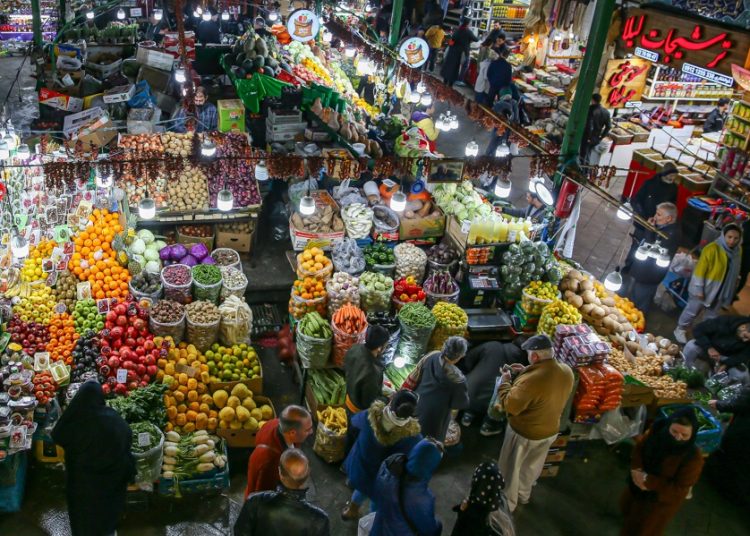In anticipation of Yalda night, the venerated Iranian tradition that heralds the winter solstice, Alireza beheld the approach of the longest night with an eager heart. The day had indeed arrived, and with his father, Ali, by his side, he meandered through the lively bazaar in Tehran. There, a palpable air of concern hung heavily as vendors called out prices that seemed to echo the strains of economic distress. The steep cost of nuts, once a cornerstone of Yalda night’s festivities, now stood as a luxury beyond reach for countless families, casting a shadow on the season’s cheer.
Dusk was fast giving way to the evening’s embrace when Alireza embarked on his homeward journey, his arms encircling a basket teeming with a colorful medley of seasonal fruits. This cornucopia was a testament to adaptability, stepping in for the customary yet unaffordable nuts. Upon arrival, he was greeted by the sight of his mother, Leila, tenderly arranging the bounty of pomegranates and watermelons upon the table, covered by a vibrant handmade cloth. The absence of nuts could not infringe upon the anticipation and warmth that filled their home.
He heard the doorbell ring. He ran to open the door. It was his grandparents. He greeted them with a big smile, and he kissed their cheeks. They hugged him and gave him a gift, a book of Hafez’s poems.
As Yalda night – also known as Shabe-e Chelleh – unfolded, the household became a haven for the extended family, a tableau of shared stories, poetic verses, and unbridled laughter. Aunt Parisa animated the gathering with renditions of ancient lore, while Grandmother Azar’s memories of past Yalda nights added a depth to the night’s sentiment.
Alireza’s father, Ali – a Persian literature graduate from the University of Shiraz – retrieved the Divan of Hafez, a revered Persian poet. Gathering the family around, each person opened the book to a random page, seeking guidance and insights for the year ahead. With reverence, Ali interpreted the verses, weaving the words of Hafez into personal reflections and predictions for each family member. He highlighted the beauty of the poetry, drawing parallels to their lives, offering wisdom, hope, and encouragement. Alireza listened intently as his father’s interpretations painted a tapestry of possibilities, infusing the night with a sense of anticipation and contemplation about the path that lay ahead for each of them.
Mirth and laughter rang through the hall, a stark contrast to the world outside where the urban landscape languished under a shroud of smog. The scarcity of snow in several cities intensified the gloom of air pollution, an ominous testament to the inclement reality of climate change and environmental wear. From behind glass panes, Alireza longed for the snowy vistas that once graced Yalda celebrations, nostalgic scenes now ousted by murky skies.
Nevertheless, within the walls of the Alireza residence, the essence of Yalda blazed undiminished. The family congregated around the sweetness of fruit, each bite a defiance of the dark, a collective ushering in of optimism for lengthier days ahead.
Alireza’s father stood, a silhouette against the night sky, as he recounted to the assembled youths the storied traditions and beliefs that surrounded the celestial pageantry of the solstice, his narrative a refrain about the significance of resilience and solidarity in tumultuous times. He drew analogies between the perservance required through the extended night and the steadfastness of their family amid hardships.
The culmination of Yalda brought with it moments of reflection and connection among the family members. They exchanged vows of health and prosperity.
In essence, Yalda night for Alireza and his kin transcended mere ritualistic observance, rising to embody the enduring spirit of resilience, the artistry of adaptation, and the profound significance of unity in the face of life’s inexorable challenges.






